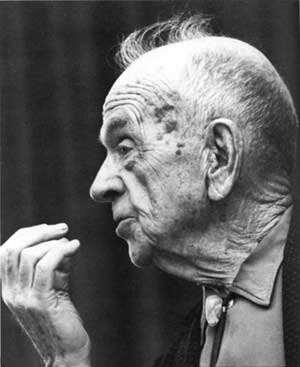
2010 marks the 30th anniversary of the death of one of the most influential philosophers of informal learning: Freeman Tilden.
Freeman Tilden championed the idea of "interpretation", rather than "education". In his book "Interpreting Our Heritage" from 1957 (my revised edition is from 1967), Tilden offers two concepts of interpretation - of how to engage in educational activity tied to natural and cultural heritage. He considered the first concept for personal use: "Interpretation is the revelation of a larger truth that lies behind any statement of fact." The second concept concerned contact between a museum/park educator and the public: "Interpretation should capitalize mere curiosity for the enrichment of the human mind and spirit".
On page 9, Tilden goes on to list six basic principles of interpretation, which he then elaborates on throughout the rest of the book:
I. Any interpretation that does not somehow relate what is being displayed or described to something within the personality or experience of the visitor will be sterile.
II. Information, as such, is not Interpretation. Interpretation is revelation based upon information. But they are entirely different things. However all interpretation includes information.
III. Interpretation is an art, which combines many arts, whether the materials presented are scientific, historical or architectural. Any art is in some degree teachable.
IV. The chief aim of Interpretation is not instruction, but provocation.
V. Interpretation should aim to present a whole rather than a part, and must address itself to the whole man rather than any phase.
VI. Interpretation addressed to children (say up to the age of twelve) should not be a dilution of the presentation to adults, but should follow a fundamentally different approach. To be at its best it will require a separate program.
Tilden insisted that interpretation could be a tool for getting the public to think for itself, to be active learners:
"The interpreter who creates a whole, pares away all the obfuscating minor detail and drives straight toward the perfection of his story will find that his hearers are walking along with him - are companions on the march. At some certain point, it becomes their story as much as his." (1967:31)
No comments:
Post a Comment